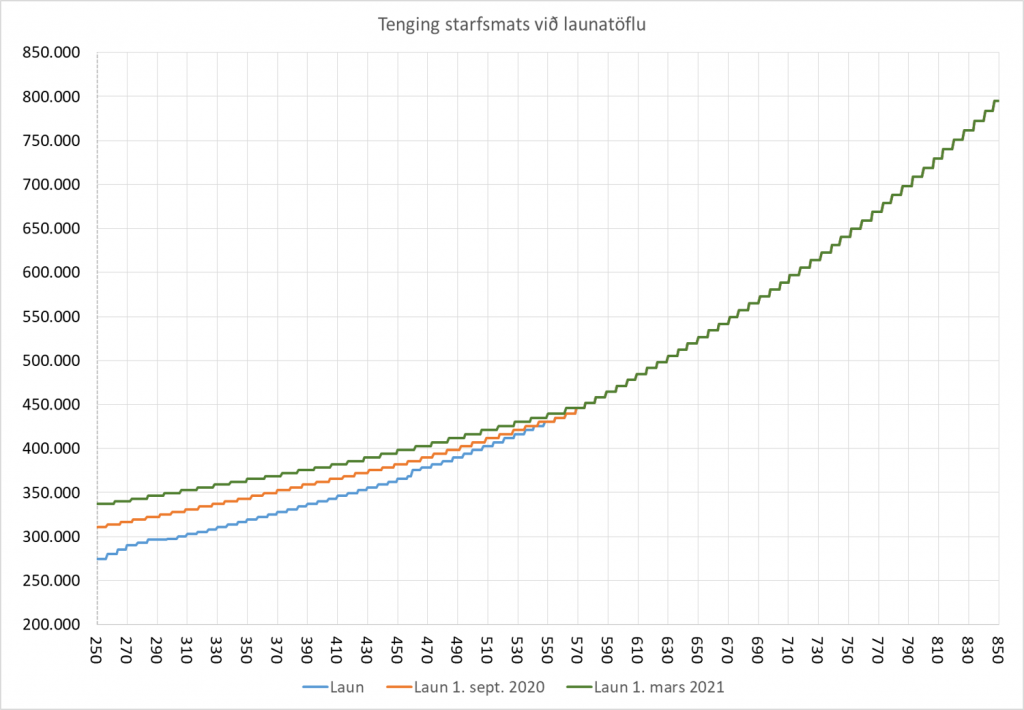The negotiating committee of Efling with the City of Reykjavík put forth a proposal for the city’s negotiating committee on Thursday, January 16th. The media has mainly focused on the amount of the December-bonus but it is neither the main item of the proposal nor of central concern to the negotiating committee. The key item in the proposal is the correction of the wages of the lowest paid employees of the city.Four annual raisesFirst and foremost is the fact that the proposal agrees to adapt the raises in wage rates to the spirit of the so-called quality of life agreement, which is to say, four annual raises in the wage rates to the amount of 90 thousand during the agreement’s duration.That raise alone is not enough, however, to address the circumstances in which the low wage earners, who work for the City of Reykjavík, find themselves. They aren’t, unlike workers in the open labor market, given the opportunity to raise their wages with wage interviews and bonuses as is the case in the private sector when there is a high demand for workers. Extra hours and overtime pay are not available, for instance, to most of the Efling-members working for the city. Taking on extra hours for overtime pay is often the only recourse available to low wage earners in order to make ends meet but that way is shut to many of the members of Efling who work for the city.Correction of wagesThe City of Reykjavík cut public services after the economic collapse, which made matters more difficult for the city’s staff. The subsequent period of prosperity did not solve matters, as it resulted in more job opportunities in the open labor market, to which the preschool staff of the city flocked. This again increased the pressure on the lowest paid staff, those without professional education, whose responsibility to keep the preschools running weighs ever heavier on them.Most of the staff of preschools is women and the care of children is work which women have done for decades upon decades and centuries without compensation. The legacy of this arrangement is still detectable, as the current municipal authorities even now expect women to care for the children for wages which are insufficient for a person in Iceland to make ends meet, even though these same authorities on other occasions tend to claim to support equality and the struggle for women’s liberation.This fact has caused a large class of women here in Reykjavík to have to live on the verge of poverty, and to work under such strain that disability becomes a very real danger as they reach middle age.To counter this, the negotiating committee of Efling has put forth a proposal for reform, based on the precedent set in 2005 by the mayor, Steinunn Valdís Óskarsdóttir, who proceeded to implement a correction of the wages of professions mostly occupied by women. She thought of this as a natural step in the direction of addressing concerns regarding gender inequality, and the negotiating committee of Efling agrees.The implementation consists of an algorithm to calculate wages for certain job categories, which is already available, to be altered slightly. This will make possible a wage correction for the lowest wage brackets; the lower the wages – the higher the raise.
